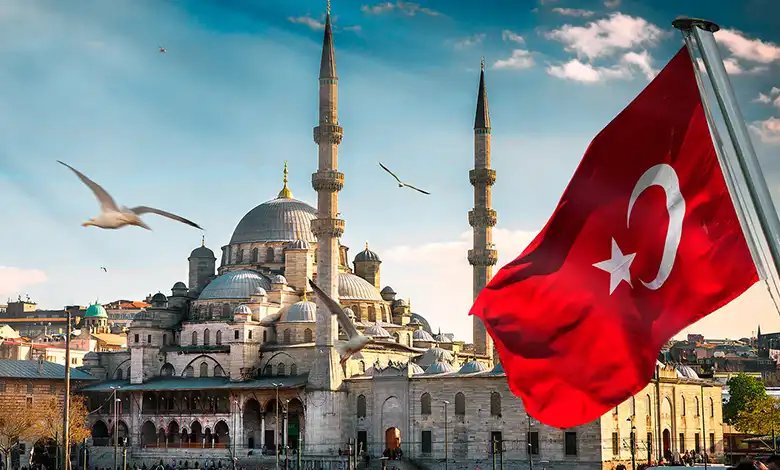The most important Holidays of Turkey
Turkish Festivals: Celebrating the Heartbeat of the Nation

Introduction
Turkey is a country rich in culture, traditions, and history. One fascinating aspect of Turkish culture is the diverse array of holidays celebrated throughout the year. These holidays are significant for the Turkish people, from religious observances to national commemorations. In this article, we will delve into the most important holidays in Turkey, exploring their history, significance, and the joyous festivities associated with them.
History and significance of Turkish holidays
Turkish holidays have deep roots in the country’s history, reflecting its multicultural heritage and the influences of various civilizations. These holidays serve as occasions for celebration and carry profound symbolic meanings for the Turkish people. They provide an opportunity to connect with their traditions, honor their ancestors, and reinforce a sense of national identity. Let’s explore some of the most prominent holidays that shape the cultural fabric of Turkey.
Eid al-Fitr: The celebration of breaking the fast
Eid al-Fitr is one of the most important religious holidays in Turkey. It marks the end of Ramadan, the holy month of fasting Muslims observe worldwide. This joyous occasion brings families and communities together to celebrate the completion of a month of spiritual reflection and self-discipline. The festive atmosphere is palpable as people indulge in delectable feasts, exchange gifts, and extend acts of charity to those in need.

Republic Day: Honoring the establishment of modern Turkey
Republic Day holds a special place in the hearts of every Turkish citizen. Celebrated on October 29th, it commemorates the proclamation of the Republic of Turkey in 1923. This significant milestone marked the transition from an empire to a modern nation-state under the visionary leadership of Mustafa Kemal Atatürk. On this day, grand parades, fireworks, and cultural events occur nationwide, showcasing the Turkish people’s pride in their nation’s progress and achievements.

Mevlana Festival: Commemorating the Sufi poet Rumi
The Mevlana Festival is a unique celebration that honors the life and teachings of the renowned Sufi poet Rumi, also known as Mevlana. Held annually in Konya, the city where Rumi spent the final years of his life, this festival brings together people from all walks of life to engage in spiritual practices, music, and dance. The mesmerizing whirling dervishes, clad in their distinctive white robes, spin gracefully as a form of meditation and devotion, captivating the audience with their spiritual energy.

Turkish Independence Day: Remembering the war for independence
Turkish Independence Day is a momentous occasion commemorating the Turkish War of Independence, which lasted from 1919 to 1922. This historic struggle against foreign powers led by Mustafa Kemal Atatürk resulted in the establishment of the Republic of Turkey. Today, the Turkish people pay tribute to their heroes and reflect on their sacrifices to secure their independence. Festivities include parades, ceremonies, and exhibitions that showcase the nation’s unity and resilience.
New Year’s Day: Welcoming the new year with joy and tradition
New Year’s Day is universally celebrated, and Turkey is no exception. As the clock strikes midnight on December 31st, people gather with loved ones to bid farewell to the old year and welcome the new one. Festive decorations adorn streets and homes, and traditional customs like lighting fireworks, making wishes, and sharing a special meal bring joy and anticipation for the year ahead.

Victory Day: Celebrating the triumph of Turkey in the Battle of Dumlupınar
Victory Day is an important national holiday commemorating the Turkish victory in the Battle of Dumlupınar, a decisive battle during the Turkish War of Independence. On August 30th, people throughout Turkey celebrate this triumph with parades, fireworks, and other festivities. It is a day to honor the bravery and determination of the Turkish soldiers who fought for their independence and paved the way for the modern Turkish state.
Şeker Bayramı: The sweet holiday of sugar and joy
Şeker Bayramı, also known as Eid al-Adha, is a significant religious holiday celebrated by Muslims worldwide, including Turkey. It is a time of joy, gratitude, and unity as families come together to commemorate the willingness of Ibrahim (Abraham) to sacrifice his son as an act of obedience to God. The holiday is marked by the sacrifice of an animal, typically a sheep, and meat distribution to the less fortunate. Children receive sweets and gifts, adding to the festive atmosphere.
Conclusion:
In conclusion, the holidays of Turkey are not merely dates on a calendar but rather vibrant expressions of culture, history, and faith. Each holiday carries unique traditions, customs, and stories that the Turkish people cherish. These holidays, from religious observances like Eid al-Fitr and Şeker Bayramı to national commemorations like Republic Day and Victory Day, provide the Turkish nation reflection, celebration, and unity. So, next time you visit Turkey, immerse yourself in the joyous festivities of these crucial holidays and experience the rich tapestry of Turkish culture firsthand.











